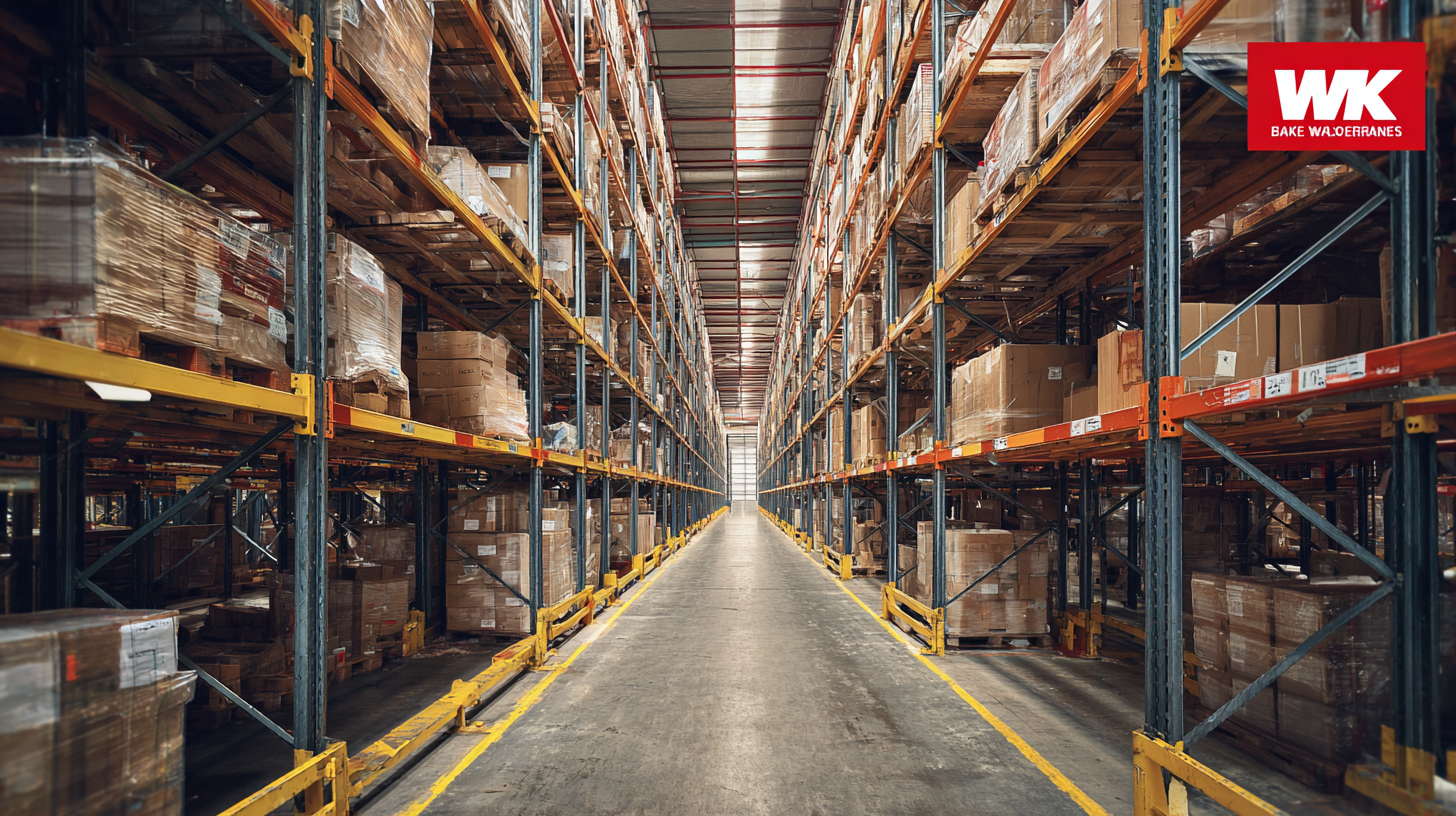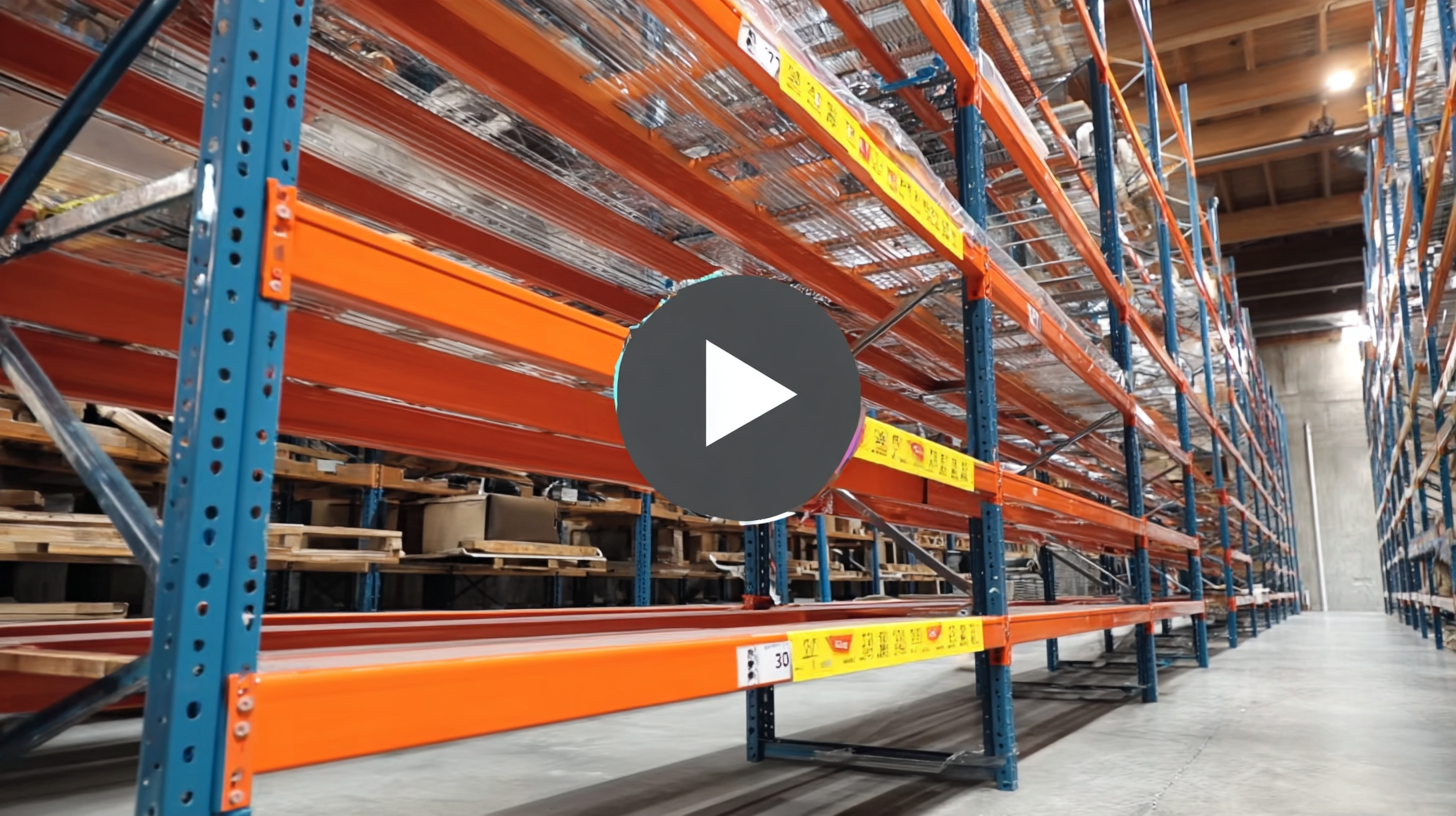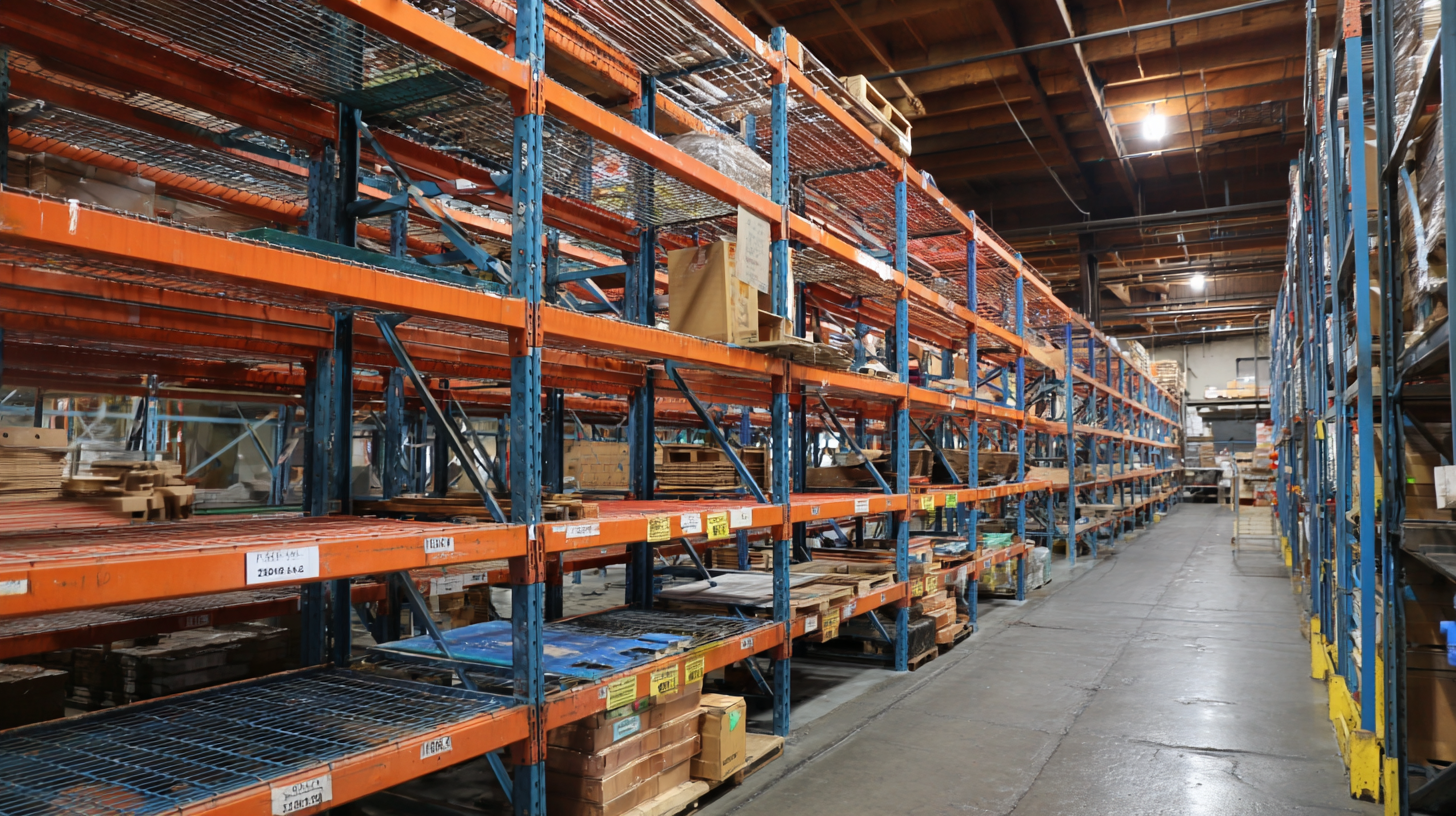12 Best Used Warehouse Racking Solutions for Your Storage Needs
In today's rapidly evolving logistics landscape, efficient storage solutions are critical for businesses striving to optimize their operations. According to the Material Handling Industry of America (MHIA), warehouses are expected to automate and adapt smarter storage systems, including the increasing use of Used Warehouse Racking, to manage inventory effectively. The global warehouse racking market is projected to reach USD 15 billion by 2025, driven by the growing e-commerce sector and the need for better space utilization. As companies seek to reduce costs while maximizing storage efficiency, the demand for used warehouse racking solutions has surged, offering a sustainable and cost-effective approach to expanding capacity without the hefty price of new systems. This blog will explore the 12 best used warehouse racking solutions tailored to meet diverse storage needs, ensuring businesses can make informed decisions for their operational success.

Exploring the Top Benefits of Buying Used Warehouse Racking Solutions
When considering warehouse efficiency, opting for used warehouse racking solutions can significantly enhance your storage capabilities without the hefty price tag of new systems. Used racks not only reduce initial capital expenditure but also contribute to sustainability by minimizing waste and repurposing equipment. By investing in used solutions, businesses can allocate saved resources to other critical areas, increasing overall operational efficiency.
Moreover, the flexibility of used warehouse racking options allows companies to tailor their storage configurations to meet evolving inventory demands. This adaptability is essential in a fast-paced business landscape, where the ability to scale storage solutions quickly can be a competitive advantage. Just as decentralized data storage networks offer diverse benefits and challenges, choosing the right used racking solution can streamline operations and improve inventory management, ensuring that your warehouse operates at its highest potential.
12 Best Used Warehouse Racking Solutions for Your Storage Needs
| Racking Type | Weight Capacity (per Level) | Material | Height Options | Price Range | Advantages |
|---|---|---|---|---|---|
| Selective Pallet Racking | 3000 lbs | Steel | 8 - 30 ft | $100 - $500 per unit | Easy access to all pallets |
| Drive-In Racking | 4000 lbs | Steel | 10 - 25 ft | $150 - $600 per unit | Maximizes storage space |
| Push Back Racking | 3500 lbs | Steel | 8 - 20 ft | $200 - $700 per unit | Good for first-in, last-out |
| Cantilever Racking | 5000 lbs | Steel | 8 - 16 ft | $150 - $800 per unit | Ideal for long items |
| Paltem Racking | 2500 lbs | Steel/Plastic | 8 - 20 ft | $120 - $450 per unit | Lightweight with flexibility |
| Mobile Racking | 2000 lbs | Steel | 8 - 14 ft | $300 - $900 per unit | Space-saving design |
| Double Deep Racking | 3500 lbs | Steel | 10 - 22 ft | $250 - $700 per unit | Increased storage density |
| Very Narrow Aisle Racking | 3000 lbs | Steel | 15 - 30 ft | $200 - $600 per unit | Optimal space utilization |
| Shelf Racking | 2000 lbs | Steel | 5 - 10 ft | $80 - $300 per unit | Versatile for small items |
| Bin Racking | 1500 lbs | Steel | 4 - 8 ft | $50 - $200 per unit | Ideal for organizing small parts |
| Compact Racking | 3000 lbs | Steel | 8 - 20 ft | $150 - $500 per unit | Space-efficient layout |
Key Features to Consider When Selecting Warehouse Racking Systems
When selecting the ideal warehouse racking system for your storage needs, it's crucial to consider key features that enhance both efficiency and safety. One primary aspect is the load capacity of the racking. Ensure that the system can support the weight of your stored items without compromising stability. Analyzing the weight distribution and ensuring that you select racks designed for specific loads can prevent future accidents and damage to your merchandise.
Another important feature to assess is the accessibility of the racking system. Choose designs that allow for easy access to products, minimizing delays during inventory management. Options like selective racking or double-deep racking can significantly improve picking efficiency while retaining the ability to store a variety of products. Additionally, consider the material and durability of the racking. Heavy-duty steel racks, for example, can withstand harsher conditions, offering a longer lifespan and better value for your investment. Always opt for systems that meet industry standards for safety and reliability to create a productive and safe working environment.
12 Best Used Warehouse Racking Solutions for Your Storage Needs
How to Choose the Right Warehouse Racking for Your Storage Needs
When selecting the right warehouse racking for your storage needs, it's essential to evaluate the specific requirements of your operation. Factors such as the types of products you store, the available space, and your workflow processes can significantly influence your choice. For instance, if you handle heavy pallets, consider investing in heavy-duty shelving units that can support substantial weight without compromising safety.
One crucial tip is to take precise measurements of your warehouse space before making a purchase. This step ensures that the racking system fits appropriately, optimizing vertical storage and minimizing wasted space. Additionally, think about the layout of your operations; a well-organized racking system should facilitate smooth material handling, allowing for efficient access to items.
Furthermore, consider flexibility in your racking solutions. As your business evolves, so may your storage needs. Opting for adjustable shelving systems can accommodate various product sizes and help adapt to future inventory changes. This approach not only maximizes storage efficiency but also saves costs in the long run.

Cost-Effective Tips for Purchasing Quality Used Racking Equipment
When it comes to maximizing storage efficiency, investing in quality used warehouse racking can be a game changer. According to a report by the Material Handling Industry of America (MHIA), companies can save between 30% to 50% on equipment costs by choosing used racking solutions over new ones. This significant cost reduction allows businesses, especially small and mid-sized ones, to allocate their budgets more effectively while still meeting their storage needs.
However, purchasing used racking equipment requires strategic planning to ensure you obtain reliable and safe solutions. For instance, it's crucial to evaluate the racking's condition and check for any signs of wear or damage. The Warehouse Demolition Association states that nearly 25% of used racking sold may not meet current safety standards, which means buyers should always request certifications and inspection records. Additionally, consider working with reputable suppliers who specialize in used equipment, as they often provide warranties and support that can safeguard your investment over time.

Understanding Safety Standards and Compliance in Warehouse Racking Solutions
When it comes to choosing the right warehouse racking solutions, understanding safety standards and compliance is paramount. These standards are designed to protect both employees and inventory. It’s crucial to familiarize yourself with local regulations as well as industry standards like the Occupational Safety and Health Administration (OSHA) and the American National Standards Institute (ANSI). Ensuring that your racking systems meet these guidelines can significantly reduce the risk of accidents and enhance workplace safety.
Tip: Regular maintenance checks and employee training on proper equipment use can help maintain compliance. Always inspect racking systems for damage or wear and tear, and address any issues promptly.
In addition to safety compliance, selecting racking solutions that fit your storage needs can optimize your warehouse space. Understanding load capacities and ensuring your racking systems are designed for your specific products will enhance efficiency. Relying on adjustable and modular systems can provide flexibility as your inventory fluctuates.
Tip: Consider using load labels and signage to clearly indicate weight limits and safe storage practices, which can further mitigate risks and enhance operational efficiency.


